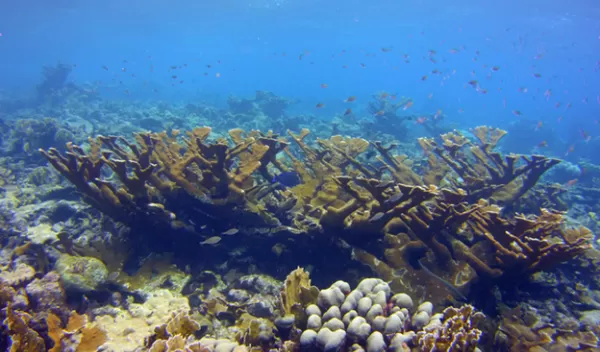
Corals pass mutations acquired during their lifetime to offspring
In a discovery that challenges more than a century of evolutionary conventional wisdom, corals have been shown to pass somatic mutations — changes to the DNA sequence that occur in nonreproductive cells — to their offspring. A paper describing the U.S. National Science Foundation-supported research appears in the journal Science Advances.
The finding, by an international team of scientists led by Penn State biologists, demonstrates a potential new route for the generation of genetic diversity, the raw material for evolutionary adaptation, and could be vital for allowing endangered corals to adapt to rapidly changing environmental conditions.
"For a trait, such as growth rate, to evolve, the genetic basis of that trait must be passed from generation to generation," said Iliana Baums at Penn State and leader of the research team. "For most animals, a new genetic mutation can only contribute to evolutionary change if it occurs in a germline or reproductive cell, for example in an egg or sperm cell.
"Mutations that occur in the rest of the body, in the somatic cells, were thought to be evolutionarily irrelevant because they do not get passed on to offspring. However, corals appear to have a way around this barrier that seems to allow them to break this evolutionary rule."
Since the time of Darwin, our understanding of evolution has become ever more detailed. It is now known that an organism's traits are heavily determined by the sequence of their DNA.
Individuals in a population vary in their DNA sequence, and this genetic variation can lead to the variation in traits, such as body size, that could give an individual a reproductive advantage. Only rarely does a new genetic mutation occur that gives an individual such a reproductive advantage, and evolution can only proceed further if – and this is the key – the individual can pass the change to its offspring.
"Because corals grow as colonies of genetically identical polyps, somatic mutations that arise in one coral polyp can be exposed to the environment and screened for their utility without necessarily affecting the entire colony," said Baums. "Therefore, cells with potentially harmful mutations may die off, and cells with potentially advantages mutations could thrive and spread as the coral colony continues to grow. If these mutations can then be passed on to offspring — as we have now demonstrated — it means that corals have an additional tool that might be able to speed up their adaptation to climate change."
